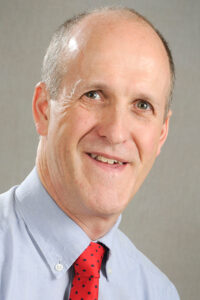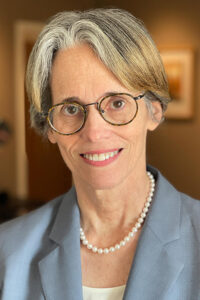The writing team of the first-ever American Diabetes Association® (ADA)/European Association for the Study of Diabetes (EASD) Consensus Report on the management of patients with type 1 diabetes aged 18 years and older will discuss their work at the 81st Scientific Sessions and seek feedback before finalizing the report.

Richard I.G. Holt, PhD, FRCP, and Anne L. Peters, MD, co-chairs of the report, will lead the session, Management of Type 1 Diabetes in Adults—2021 Draft ADA/EASD Consensus Report, which begins at 8:00 a.m. ET on Monday, June 28, and includes a live video question-and-answer period.
“One of the goals is to help people in primary care—people who aren’t endocrinologists—be able to help their patients,” said Dr. Peters, Professor of Medicine at the Keck School of Medicine of the University of Southern California (USC), Director of the USC Clinical Diabetes Programs, and a member of the ADA Professional Practice Committee responsible for Standards of Medical Care in Diabetes. “The pandemic made us see how much we need to do for people with diabetes because they’re particularly vulnerable.”
Although the report was proposed in late 2019 before COVID-19 spread across the globe, the pandemic shaped the development of the document. The writers collaborated through monthly virtual meetings, with one ADA member and one EASD member pairing off to address each topic. The following will be discussed during the session:

- Diagnosis of type 1 diabetes
- Schedule of care
- Monitoring
- Insulin therapy
- Hypoglycemia
- Diabetic ketoacidosis
- Pancreas and islet cell transplantation
- Adjunctive therapy
- Diabetes self-management education and lifestyle considerations
- Behavioral and psychosocial support
- Special populations
- Emergent and future perspectives
Dr. Peters will review the methods, goals, and targets of the report, and Dr. Holt will outline key knowledge gaps and moderate a question-and-discussion period.
“One of the strengths of this report is that we have paid particular attention to the psychological and social aspects of diabetes and the needs for us to incorporate psychosocial care and support within the holistic management of type 1 diabetes,” said Dr. Holt, Professor of Diabetes and Endocrinology at the University of Southampton, United Kingdom, and a member of the EASD Committee for Clinical Affairs.
The draft also includes new recommendations regarding continuous glucose monitoring.
“This will be something that will help us manage patients better going forward,” Dr. Peters said. “It’s not telling everybody what to do exactly. It’s discussing what data exists and then what we recommend doing as a standard for people with type 1.”
The draft presentation will include information for the entire diabetes multidisciplinary team, including doctors, nurses, diabetes educators, dieticians, psychologists, and pharmacists.
“It’s an opportunity for people to learn from a variety of experts and then critique the information and see how it would fit into their own practice,” Dr. Peters said.
The first draft of the report was finished in January and then went through internal peer review at the ADA and the EASD. Now in its second draft, the final report is scheduled to be presented at the EASD virtual meeting in October.
“We want to make sure that this gets disseminated and read by people in primary care because we believe, at least in the United States, half of the adults with type 1 are treated in primary care,” Dr. Peters said. “This gives a framework for those individuals who may not live and breathe this to have a set of guides.”
The more feedback provided by Scientific Sessions attendees, the better, the co-chairs said.
“If you have 10 people making the same comment, that will have greater weight than if just one person does,” Dr. Holt said. “So even if people find that they are making comments that duplicate other people’s comments, that doesn’t make it less valuable to us as a committee.”
Register today for the 81st Scientific Sessions
If you haven’t registered for the 81st Scientific Sessions, register today to access all of the valuable content during the meeting, June 25–29. Registration also includes on-demand access to all of the virtual content in the Post-Meeting Archive, June 30–September 29.